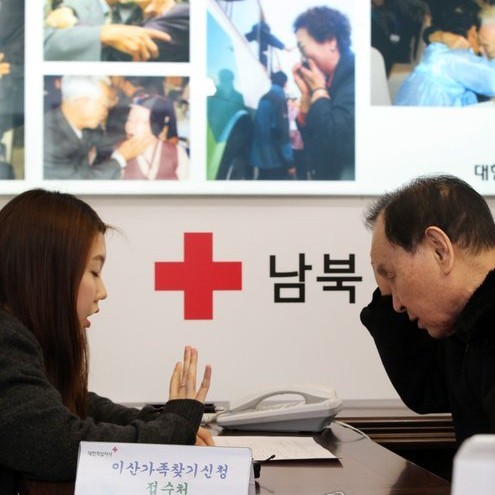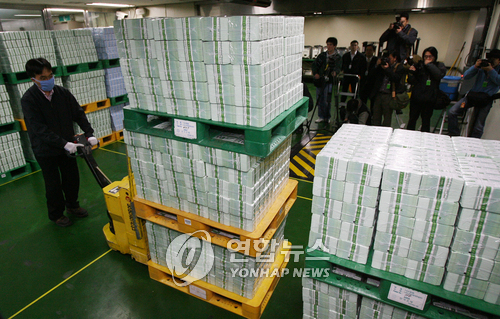- California Assembly OKs highest minimum wage in nation
- S. Korea unveils first graphic cigarette warnings
- US joins with South Korea, Japan in bid to deter North Korea
- LPGA golfer Chun In-gee finally back in action
- S. Korea won’t be top seed in final World Cup qualification round
- US men’s soccer misses 2nd straight Olympics
- US back on track in qualifying with 4-0 win over Guatemala
- High-intensity workout injuries spawn cottage industry
- CDC expands range of Zika mosquitoes into parts of Northeast
- Who knew? ‘The Walking Dead’ is helping families connect
S. Korea proposes reunions Feb. 17-22

The two Koreas have held 18 reunions since 2000 but they were halted in 2010 after inter-Korean ties plunged to one of their lower ebbs following North Korea’s deadly attack on a South Korean warship and an island.
By Chung Min-uck
South Korea has proposed an inter-Korean family reunion from Feb. 17 to 22, the Ministry of Unification said Monday.
“Considering the separated families’ desire to reunite, we propose to hold the reunion program from Feb. 17 to 22 at Mt. Geumgang,” the ministry said in a message delivered to Pyongyang through a communication channel at the truce village of Panmunjeom.
The North had proposed Friday a reunion event as part of its latest conciliatory gestures towards the South, at Mt. Geumgang, a scenic mountain resort on its east coast, after Lunar New Year holiday which ends Feb. 2.
President Park Geun-hye, during her New Year’s speech earlier this month, called for resumption of family reunions.
In its proposal, the South also offered to hold Red Cross talks Wednesday at Panmunjeom to discuss details, and is expected to select up to 100 individuals for the reunion.
“We hope the North will respond positively to our proposal and give momentum in improving inter-Korean relations,” ministry spokesman Kim Eui-do told a regular briefing, Monday.
Despite the ministry’s denial, experts say Seoul has factored in joint military exercises with Washington, which will kick off late February and last until April, when deciding the date for the reunion.
Pyongyang previously rejected a proposal to hold the event, citing the military drills, specifically Key Resolve.
The North has repeatedly demanded that South Korea scrap the joint exercises, calling them a rehearsal for a nuclear war against it. Seoul and Washington countered this by clarifying that the annual drills are defensive in nature.
Millions of Koreans remain separated following the 1950-53 Korean War that ended in a cease-fire and not a peace treaty. Family reunions are an urgent inter-Korean issue because most of the separated Koreans are in their 70s and 80s.
The two Koreas have held 18 reunions since 2000 but they were halted in 2010 after inter-Korean ties plunged to one of their lower ebbs following North Korea’s deadly attack on a South Korean warship and an island.
Over 20,000 separated family members have met until now with around 70,000 South Koreans being registered to participate in the program.












